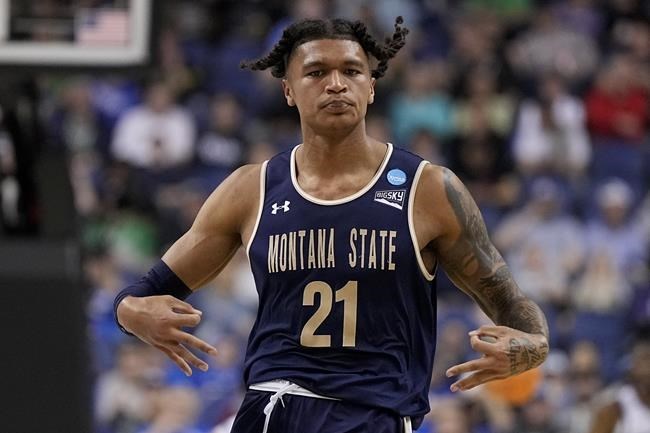CHARLESTON, W.Va. (AP) — College athletes who were denied the chance to play immediately after transferring a second time can return to competition, for now, after a federal judge issued a 14-day temporary restraining order Wednesday against the NCAA.
U.S. District Judge John Preston Bailey in northern West Virginia issued the order against the NCAA from enforcing the transfer rule. A lawsuit filed by West Virginia and six other states alleged the rule’s waiver process violated federal antitrust law.
A hearing on the restraining order is scheduled for Dec. 27, Bailey said.
The NCAA didn’t immediately indicate whether it would appeal the ruling.
NCAA rules allow underclassmen to transfer once without having to sit out a year. But an additional transfer as an undergraduate generally requires the NCAA to grant a waiver allowing the athlete to compete immediately. Without it, the athlete would have to sit out for a year at the new school.
Last January, the NCAA implemented stricter guidelines for granting those waivers on a case-by-case basis.
The states involved in seeking the restraining order were Colorado, Illinois, New York, North Carolina, Ohio, Tennessee and West Virginia.
It wasn’t immediately clear whether any of the affected players would try to compete during the 14-day window and what ramifications they could face if the NCAA would eventually prevail in the lawsuit.
West Virginia basketball player RaeQuan Battle transferred this season from Montana State after previously playing at Washington and has been sitting out.
“I’m in the gym every single day with the team, with the blood, sweat and tears with them,” Battle told the court Wednesday. “When the ball is thrown up and that tipoff starts, I’m not suited up. That’s what hurts me the most.”
Battle, who grew up on the Tulalip Indian Reservation in the state of Washington, has said his mental health is a big reason why he came to West Virginia. Battle said he has lost “countless people” to drugs, alcohol and COVID-19.
After Battle visited West Virginia, he learned that now-coach Josh Eilert had lived on the Pine Ridge Indian Reservation in South Dakota with his mother following his parents’ divorce and felt a connection with the coach.
West Virginia Attorney General Patrick Morrisey said in a statement the ruling “paves the way for student athletes, like RaeQuan Battle, to play in the sport they love and continue improving themselves.”
“We are looking forward to proving definitively that the NCAA has violated the Sherman Act by failing to maintain a consistent and defensible transfer rule and by denying these student athletes the chance to play," Morrisey said.
The lawsuit alleged requiring athletes to sit can mean lost potential earnings from endorsement deals with their name, image and likeness (NIL) or professional careers. It pointed to exposure from competing in national broadcasts, noting: “One game can take a college athlete from a local fan favorite to a household name.”
“It is ironic that this rule, stylized as promoting the welfare of college athletes, strips them of the agency and opportunity to optimize their own welfare as they see fit,” the lawsuit said.
A recent transfer-waiver case involved North Carolina wide receiver Devontez Walker. The NCAA initially denied his waiver as a two-time transfer. He previously played at Kent State and also had a stop at North Carolina Central, although he never played there because the COVID-19 pandemic wiped out NCCU’s 2020 season. UNC fought for months to get Walker cleared in a testy case before the NCAA reversed its position in October.
___
AP sports: https://apnews.com/sports
John Raby, The Associated Press

